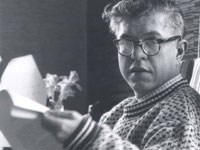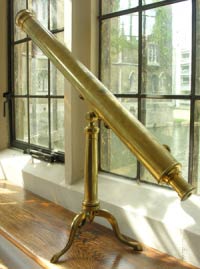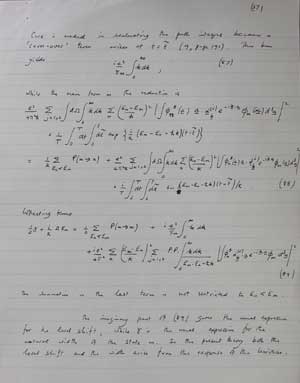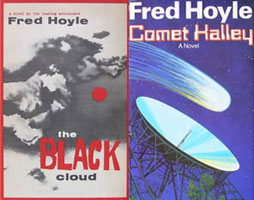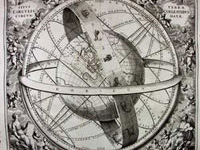Sir Fred Hoyle Project
|
|
The CollectionIn 2002 Lady Barbara Hoyle, Sir Fred’s widow, donated his library, artefacts, photographs and papers to St John’s College Library. The collection currently comprises some 680 printed books, 152 archive boxes, 22 cans of film, and around 30 artefacts. The boxes contain manuscript and typescript correspondence, working papers, lectures, notebooks, drafts of books, articles and fiction, and diaries, as well as photographs, slides, audiotapes, and offprints. A brief catalogue of the Hoyle papers, preprints, reprints, and artefacts can currently be viewed on the Personal and Family Papers page of this website. The books from Hoyle’s library are catalogued in the iDiscover Catalogue as the 'Hoyle Collection'. A full catalogue of the personal papers and photographs is available on our own archive system. The collection includes:
Hoyle’s most controversial work on Darwinian evolution, life originating in outer space, influenza, Archaeopteryx, Stonehenge, and ice ages is also well represented. His work as a great populariser of science is also evident in the collection, which includes the text of his hugely popular and influential radio broadcasts The Nature of the Universe, and drafts and editions of his equally popular science fiction novels, such as The Black Cloud and A for Andromeda. Photographs, cuttings and articles trace the whole course of his academic and public career, including his election to the Plumian Professorship at Cambridge, his public disputes with Martin Ryle over the ‘Big Bang’, his knighthood and other awards, and his controversial resignation from Cambridge in 1972. Behind the public and academic persona, the collection also shows the private man, with material reflecting his great love of climbing and chess. Generous grants from the National Lottery through the Heritage Lottery Fund, and from the Friends of the Center for the History of Physics, American Institute of Physics have enabled the employment of a Hoyle Project Associate to work on the Hoyle Project until March 2011. |
|
Outreach and SchoolsThe Hoyle Project aims to make the Hoyle Collection available to as wide an audience as possible by a variety of means:
Anyone interested in developing outreach events in collaboration with the Hoyle Project are warmly invited to contact the Special Collections Librarian (01223-339393). |
|
Astronomy in St John's College LibraryThe Old Library collection includes many manuscripts, early printed books, and personal papers connected to astronomy. Astronomical artefacts include Fred Hoyle’s boyhood telescope and an eighteenth-century clock used for timing astronomical events. Manuscripts (scroll to the bottom of the pages for links to images)William of Conches, Dragmaticon philosophiae, 13th century Early printed booksHyginus, Astronomicon poeticon (Venice, 1488) Personal papersNevil Maskelyne (1732-1811), Astronomer Royal 1765-1811 Artefacts |
|
Contact Information
If you have any questions about the Fred Hoyle Collection please contact the Special Collections Librarian (01223 339393).
